Military Families: How To Pick The Right School
By
1 year ago
A husband or wife in the military? You’ll need to get savvy about education, discovers Lucy Denyer
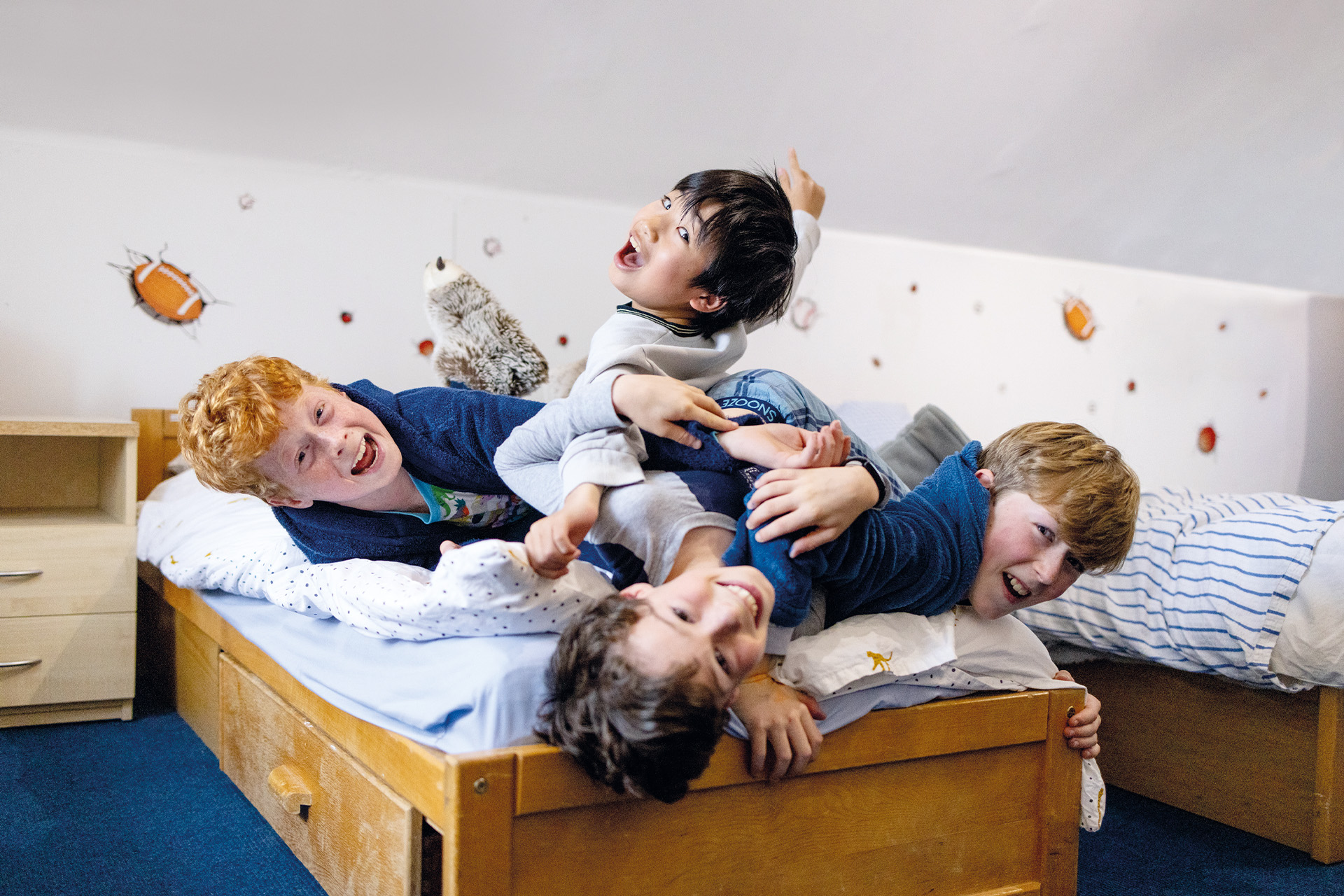
When Alexander was seven years old, his parents decided to send him to boarding school. Henceforth, Archie would spend up to three weeks at a time living, sleeping, learning and playing with 130 other boarders deep in the Wiltshire countryside, seeing his parents only a few times a term.
For many military children, experiences like Alexander’s are the norm. Many of them are currently populating Britain’s boarding schools (although the numbers claiming the military’s Continuity of Education Allowance (CEA) has dropped in recent years), largely sent there by parents making the decision to separate themselves for their children in a bid for educational continuity.

Boys playing in their dorm at Sandroyd
‘It’s been difficult,’ admits Alexander’s mother Rachel, who has two younger children still at home and says that she and her husband, an Army officer, sent him to board much earlier than they would have liked. But, she says, the alternative when they sent him away would have been Alexander going to a fourth school in just four years of education. ‘We’ve really seen the impact. He’s much happier now; the stability it offers is invaluable.’
In a time of spiralling fees and anxiety over a future Labour government sending them soaring still higher with the proposed 20 percent VAT levy, boarding is not a choice many can make: just 13 percent of private school pupils in the UK board. A relatively substantial chunk of them, especially at prep level, is made up of military children, who benefit from subsidised fees to board, to ensure that they don’t have to move from pillar to post with their serving parent, most of whom have jobs that change every two or three years and often have no idea where they’ll be living in 18 months’ time.
Said schools, then, have a great responsibility towards their small charges, many of whom may go home for the holidays to a house they’ve never seen before, in a part of the country they’ve never visited. For military parents, the decision is huge and loaded – not just to send their child away, but to find them a place where they will receive a similar level of loving care that they would at home. How to go about it?
‘Boarding is a big decision for any family to make’, comments Ali Rogers, head of admissions and marketing at Hazlegrove, a co-ed prep school in Somerset that takes boarders from Year 3 including many from serving forces families. She says, ‘Everything we do as part of the admissions process is to ensure that parents feel that they know the school and are reassured that the decision is the right one, both for their children and the family as a whole.
‘Prep school boarders are young children and feeling part of a nurturing family setup is very important to them, when they step over the threshold of the boarding house at night, it is so important that it feels like home.’
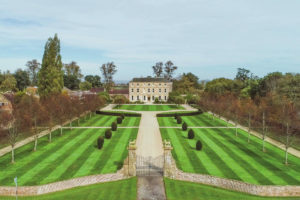
Hazlegrove School, Somerset
Hazlegrove pays particular attention to this sense of family, structuring evening meals so that children sit in small, mixed-aged groups with one of the many live-in staff with them, the food served at the table as it would be in a family. ‘They won’t leave the table without someone asking how their day was, and meaning it,’ says Victoria Dando, admissions administrator at Hazlegrove and herself a military wife whose two children are at the school – which she chose, she says, partly because of the family atmosphere, and also because it is a school where ‘a sense of childhood is preserved’.
At Queen Mary’s in Yorkshire, a school for girls aged eight to 16, the relatively small number of full boarders means the family feeling is emphasised even more: ‘flexibility-wise, if the girls want to, say, pop to the supermarket at the weekend to get some tuck means we can do that,’ says Jennifer Hirst, director of external relations. That sort of flexibility, says Hirst, is particularly key for military children, many of whose parents are based at nearby Catterick Garrison – ‘for instance if a parent is just back from a deployment and wants to see their daughter that weekend, or take them out for supper.’ Educationally, too: at the moment the school is offering German to two girls specifically because their parents have been deployed to Germany; they have offered Russian before as well. Going through to 16, rather than the 11 or 13 of a traditional prep school also gives more continuity to military children, who can make their home at the school for a full eight years if they so wish.
Of course, much of the family feel of a boarding school depends on the cohort. Do you want lots of other military kids around who will understand what your child is going through, or will that feel a bit too like actually being in the Army? How many full boarders are there? If your child is one of them, is it going to be just them and one or two overseas kids at weekends?
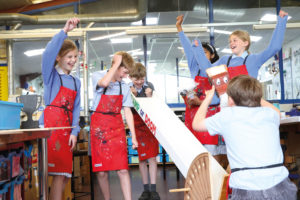
Hazlegrove School, Prep education
Rogers added, ‘When parents decide on Hazlegrove as the boarding environment for their child they are often drawn to the fact that children can stay as children for just that little bit longer here. With woods and grounds on their doorstep and an emphasis on the softer skills of life as well as enjoying the company of the person next to you rather than a mobile phone, the pressure of a social media-led world seems a far cry from the day-to-day life that the children experience. Our boarders, whether they are from the UK, overseas or local families who enjoy the flexi boarding option, all get to enjoy this period of extended childhood, and it is a pleasure through the admissions process to introduce families to this.’
‘There’s a great balance of military families here,’ says Suzanne Knight, director of marketing and development at Sandroyd, a prep school for boys and girls aged 2-13 near Salisbury in Wiltshire. ‘Enough to create a lovely community but not too many to feel like there aren’t other opportunities for friendships.’
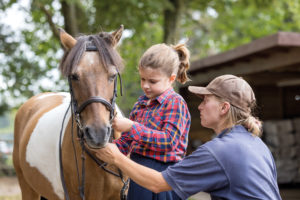
Sandroyd School, Salisbury
Location, of course, is key: many military families flock to schools like Sandroyd, or Hazlegrove in Somerset or Farleigh in Hampshire because they’re well placed for local military bases in, for example, Salisbury Plain in Wiltshire or Yeovilton in Somerset – and also means it’s not too far to go home at a weekend or exeat, or for a parent to pop in to watch a match or come to chapel if they’ve got a Saturday off. For the ones who are staying in all weekend (to qualify for the financial help available from the military, children need to board for at least four consecutive nights, so some do weekly board), what goes on when school’s out is key. At Queen Mary’s, the school’s head of adventure leads groups of girls out camping, climbing and canoeing on the river (they also embed an adventure lesson within the curriculum itself); at Sandroyd it’s bike or horse riding; Farleigh takes its boarders to clip and climb or trampolining sessions. The majority aim to keep their boarders busy and happily entertained – not just because it’s fun, but to ward off homesickness, especially for the younger ones.
This is also where a school’s ethos comes in. The majority of British prep schools are modern and thoughtful – emphasis tends to be on the whole child, on building responsible citizens who can participate and benefit society as mature adults. A school’s ethos is often more markedly apparent at senior level which, while it’s perhaps less fraught when it comes to packing a child off to board, carries a different sort of weight when choosing where to send them. At Glenalmond College in Perth, for example, ‘one of the core pillars of the school is that the children must serve society – and military service is part of that’, as Ross Borthwick, a Glenalmond housemaster puts it.
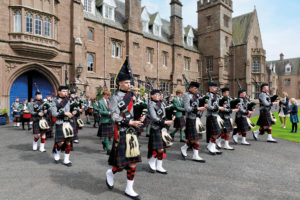
Glenalmond College, Perth
Military service is in fact compulsory at the school, where all Fourth Form (Year 10) pupils must join the CCF – little surprise, perhaps, that it claims to have produced more British Army officers than any other school. Many members of staff have themselves also served in the military – which not only helps them understand their military charges’ experiences, but builds on that thread of service that runs through the school.
It’s a similar story at Wellington College, which was founded to provide free education for the sons of Army officers who had paid the ultimate sacrifice, and has seen many distinguished military personnel pass through its doors over the years.
Wellington still has a foundation that provides a free education for all children whose parent or parents have lost their lives in an act of ‘conspicuous gallantry’.
Which brings us, finally, on to finance. Because, while military families might benefit from some financial help, in the form of Continuity of Education Allowance (CEA), this is far from covering the majority of school fees: at junior schools, military families get £6,998 per term, and at senior level, £8,692 – a way off Farleigh’s £9,810 a term for Year 4-16 boarders, or Wellington’s £16,300 termly boarding fee.

Glenalmond College aerial view
Military families are either way liable to pay at least 10% of the fees under CEA rules (and a school must be accredited to the CEA system for a military family to take advantage of the assistance), but many schools offer additional discounts to Forces families: at Queen Mary’s, for example, the school offers a 10 percent military discount, as does Hazlegrove, which also allows its top two years to claim the senior rate of allowance. And what of Labour’s proposed 20 percent VAT increase? Many military families are keeping their fingers crossed that there might be some sort of exemption for them, to avoid a return to the 12 schools in 14 years scenario, while bursars are busily working behind the scenes at many schools to ensure parents of any career don’t suffer too much.
In the meantime, for many military children, as with their parents, ‘home is where the Army sends them’. Or in this case, school.






